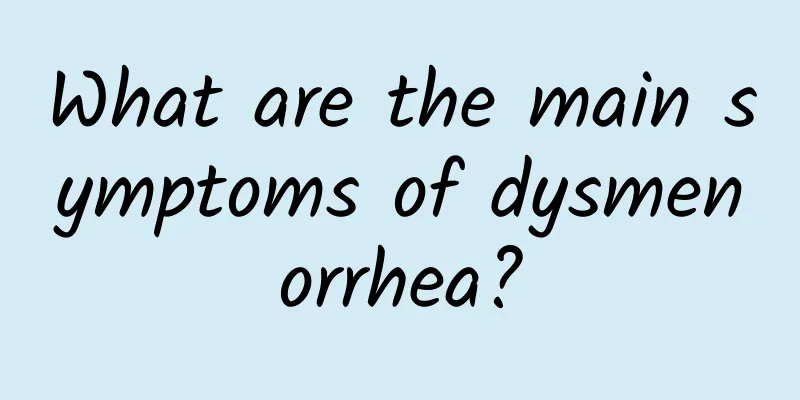What is the reason for thin people to get uterine fibroids? If people become thinner, will uterine fibroids also become smaller?

|
What is the reason why thin people get uterine fibroids? Will uterine fibroids get smaller if people lose weight? Uterine fibroids are one of the most common tumors in the female reproductive system, and they mostly occur in women of childbearing age between 35 and 55 years old. Generally, obesity is considered one of the main causes of uterine fibroids, while the reasons why thin people get uterine fibroids are relatively less concerned. So, what is the reason why thin people get uterine fibroids? Will uterine fibroids get smaller when people lose weight? The following will introduce these issues in detail. To understand why thin people get uterine fibroids, we need to understand the formation mechanism of uterine fibroids. Uterine fibroids are tumors formed by the proliferation of endometrial and myometrial tissues, and the main cause is related to abnormally high estrogen levels. The main reason why thin people get uterine fibroids may be related to genetic factors and endocrine disorders, but the specific reasons still need further research to clarify. Symptoms of uterine fibroids in thin people are similar to those in other patients, including irregular menstruation, prolonged menstruation, excessive menstrual flow, abdominal pain, etc. Therefore, if you find the above symptoms, whether you are thin or not, you need to seek medical attention in time and undergo relevant examinations to confirm the diagnosis. So, if a person loses weight, will uterine fibroids also become smaller? This question is not simple. Generally speaking, weight and body composition will have a certain impact on the growth of uterine fibroids. In obese people, adipose tissue releases estrogen, which nourishes and enlarges uterine fibroids. Therefore, weight loss can alleviate the symptoms of uterine fibroids in obese patients and help control their growth. However, for thin people, weight loss does not necessarily directly lead to the shrinkage of uterine fibroids. Because the growth of uterine fibroids is affected by many factors, and weight loss alone may not fundamentally change the estrogen level in thin patients. Here, we have to introduce the role and production mechanism of estrogen. Estrogen is a female hormone secreted by the ovaries, and they play an important role in women's physiological and reproductive processes. However, our body also produces a small amount of estrogen, including estradiol and estriol, which are mainly produced by the decomposition of fat cells. Therefore, for thin people, losing weight may reduce the number of fat cells in the body, thereby reducing the production of estrogen and the amount flowing into the blood. Although there is no direct research to prove that weight loss can directly lead to the reduction of uterine fibroids, some studies have found that weight loss may alleviate the symptoms of uterine fibroids. In summary, the reason why thin people get uterine fibroids is due to factors such as genetics and endocrine disorders. The specific reasons need further research to determine. Losing weight for thin people does not directly lead to the reduction of uterine fibroids, but losing weight can alleviate the symptoms of obese patients and help control the growth of uterine fibroids. Uterine fibroids are benign tumors that usually do not cause cancer. However, in the case of thin people with uterine fibroids, losing weight is not the best way to shrink the fibroids. If you find any symptoms related to uterine fibroids, please see a doctor in time and discuss with your doctor the treatment plan that is most suitable for you. If medication or surgical removal is required, the doctor will develop a reasonable treatment plan based on your specific situation. At the same time, regular check-ups are important measures to prevent and control uterine fibroids. Early detection and treatment can effectively reduce the adverse effects on life and fertility. |
<<: What is malignant uterine fibroids? What are the symptoms of malignant uterine fibroids?
Recommend
Is it easy for women with irregular menstruation to get pregnant?
If a woman has long-term menstrual irregularities...
Healthy and without burden! 3 tips for choosing drinks to pair with zongzi
On a sunny summer day, eating rice dumplings with...
Women should prevent vulvar leukoplakia from daily life
The causes of vulvar leukoplakia are quite comple...
What are the consequences of pelvic peritonitis?
Pelvic peritonitis is a common pelvic inflammatio...
What are the types of multiple uterine fibroids?
Clinically, the incidence of multiple uterine fib...
What tests should be done for the treatment of Bartholinitis
Even if a woman has cured her Bartholinitis, if s...
What are the auxiliary treatments for ectopic pregnancy?
What are the auxiliary treatment methods for ecto...
Why haven’t I had my period after taking progesterone for 6 days?
Why haven’t I had my period after taking progeste...
What if my period comes 9 days earlier than last time?
What if my period comes 9 days earlier than last ...
Symptoms of intrauterine adhesions after cesarean section
Symptoms of intrauterine adhesion after cesarean ...
Bacterial vaginosis can also cause infertility
We all know that the most common disease among fe...
Women's health care measures for uterine fibroids
During the treatment of diseases, health care is ...
What to do if you get bacterial vaginosis during pregnancy
Many couples have a misunderstanding about women ...
What causes the recurrence of uterine fibroids? Why are uterine fibroids prone to recurrence?
What causes the recurrence of uterine fibroids? W...
Patients with irregular menstruation should be examined in time
In recent years, irregular menstruation has long ...









